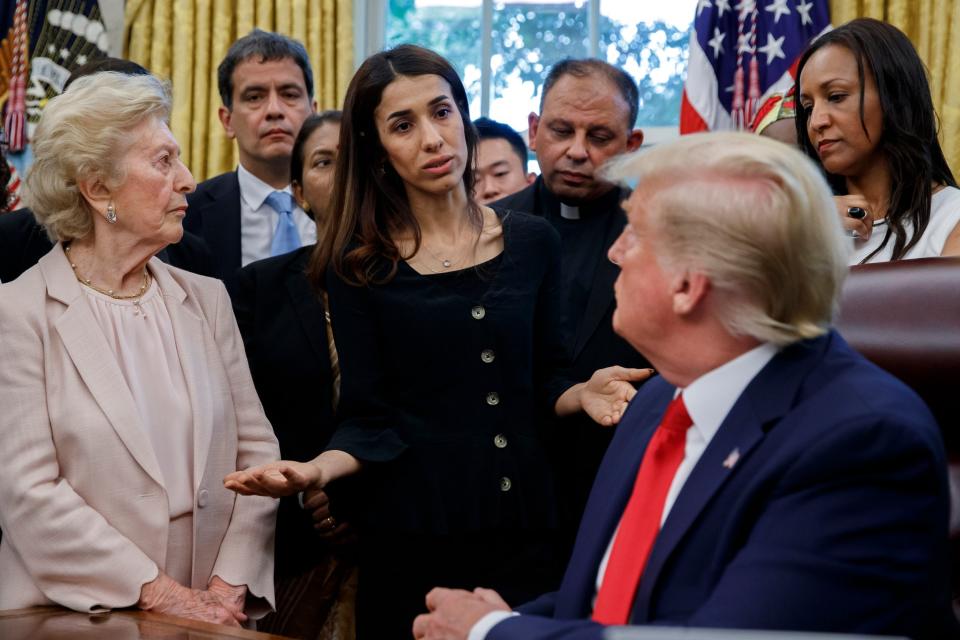'But Isis is gone and now it's Kurdish and who?': Trump reveals ignorance of Yazidi persecution
For years, Yazidi genocide survivor Nadia Murad has travelled the world to spread the word about the horrific crimes Isis committed against her people, and was awarded the Nobel Peace Prize for her efforts.
But despite Donald Trump frequently claiming credit for defeating the terror group, he appeared unfamiliar with Ms Murad’s work when the two met at the White House on Wednesday.
As Ms Murad finished telling Mr Trump the story of how her family was killed when Isis ran rampage across northern Iraq in 2014, and of her own abduction by the group, the president replied: “And you had the Nobel Prize? That's incredible. They gave it to you for what reason?”
Ms Murad then asked Mr Trump to press Iraqi and Kurdish authorities to do more for the survivors of the Isis genocide, and to allow Yazidis to return home.
"But Isis is gone and now it's Kurdish and who?" he responded.
Mr Trump said that he would "look into it very strongly".
The interaction took place at an Oval Office meeting between the president and a group of survivors of religious persecution, on the sidelines of a State Department conference on religious freedom. Also present was a representative of the Rohingya, a Muslim minority that has been the target of a state-orchestrated massacre in their home country of Myanmar.
Thousands of Yazidis were killed and more than 6,000 women and children were taken captive by Isis in the summer of 2014, when the terror group carried out a murderous rampage against the small religious minority in their traditional homeland in northern Iraq.
The UN would later declare the attack on Sinjar, and the ongoing enslavement of Yazidi women, a genocide. Many Yazidis are still living in displacement camps within Iraq, unable to return to their devastated towns and villages.
Ms Murad was among the women who were taken into slavery by Isis, when she was 19 years old. She escaped after three months, and has spent her time since helping women and children who are victims of abuse and human trafficking. In 2018, she was jointly awarded the Nobel Prize, along with Congolese doctor Denis Mukwege, "for their efforts to end the use of sexual violence as a weapon of war and armed conflict."
"My people cannot go back," she told the president in an impassioned plea. "After 2014, 95,000 Yazidis emigrated to Germany, not because we want to be refugees, but because we cannot find a safe place to live. I'm still fighting to live in safety."
"Please do something. It's not about one family," she said.

 Yahoo News
Yahoo News 

